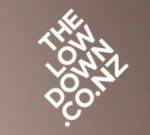In a Mental Health and Wellbeing report by the Mental Health Foundation, depression statistics show that an increasing number of New Zealanders, teens included, are having to deal with unpleasant feelings or emotions (psychological distress) in their day to day lives. This is impacting their daily lives and how well they are able to function. The report tells us several interesting facts that we should be paying attention to:
- In 2012, 5% of our youth were affected by depression and anxiety. Over the next 5 years we saw that number more than double to 11.8%.
- It was estimated that in 2017 alone, the number of New Zealand youth experiencing psychological distress increased from 58,000 to 79,000.
- In a shocking depression statistic, one in ten young Kiwis actively seeking mental health support is left waiting more than two months to be seen by a professional.
- New Zealand has the highest youth suicide rates between the ages of 15-19 in the OECD.
These depression statistics show that we have a growing issue that New Zealand needs to address today. We as a community can do more to support the people around us, whether we know what they are going through or not. For some people suffering from depression, they may wear a mask, making us completely oblivious to what is happening inside. This mask can be worn by any person from any walk of life, from your next door neighbour to your favourite TV personality.
The government knows that things need to change which is why in recent years they have been working with various schools and higher education institutions, in order to provide support to young people suffering from emotional distress. For example, in 2014, John Key worked with the University of Auckland to launch SPARX online therapy. This is an online tool designed to help teens who are feeling down or depressed, in a fun and interactive way. This tool is a great example of an alternative way to think about how we can help young people struggling with their mental health.
We Kiwis, as a community, need to remain aware of this and treat all people around us, especially our youth, with equal respect and kindness which can be shown in many ways. It can start with a smile as you walk by a stranger and can grow to be random act of kindness to someone who may be struggling, or simply a genuine conversation with a fellow commuter on the bus. Giving kindness is free and may be just what someone needs to make their day.
If you or anyone around you are experiencing any form of emotional distress, tell someone that you trust or make a confidential call to any of the help lines listed on our website.



